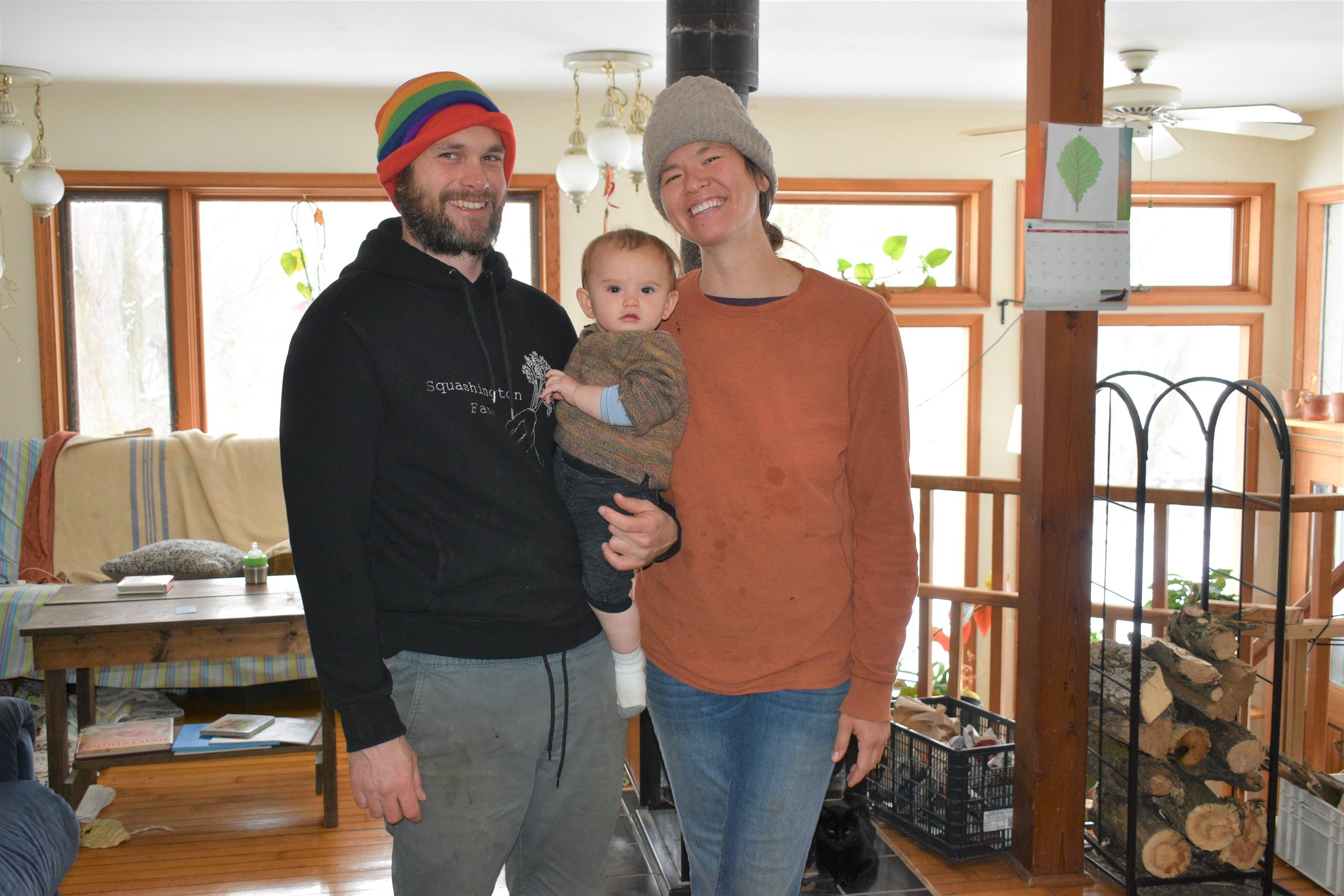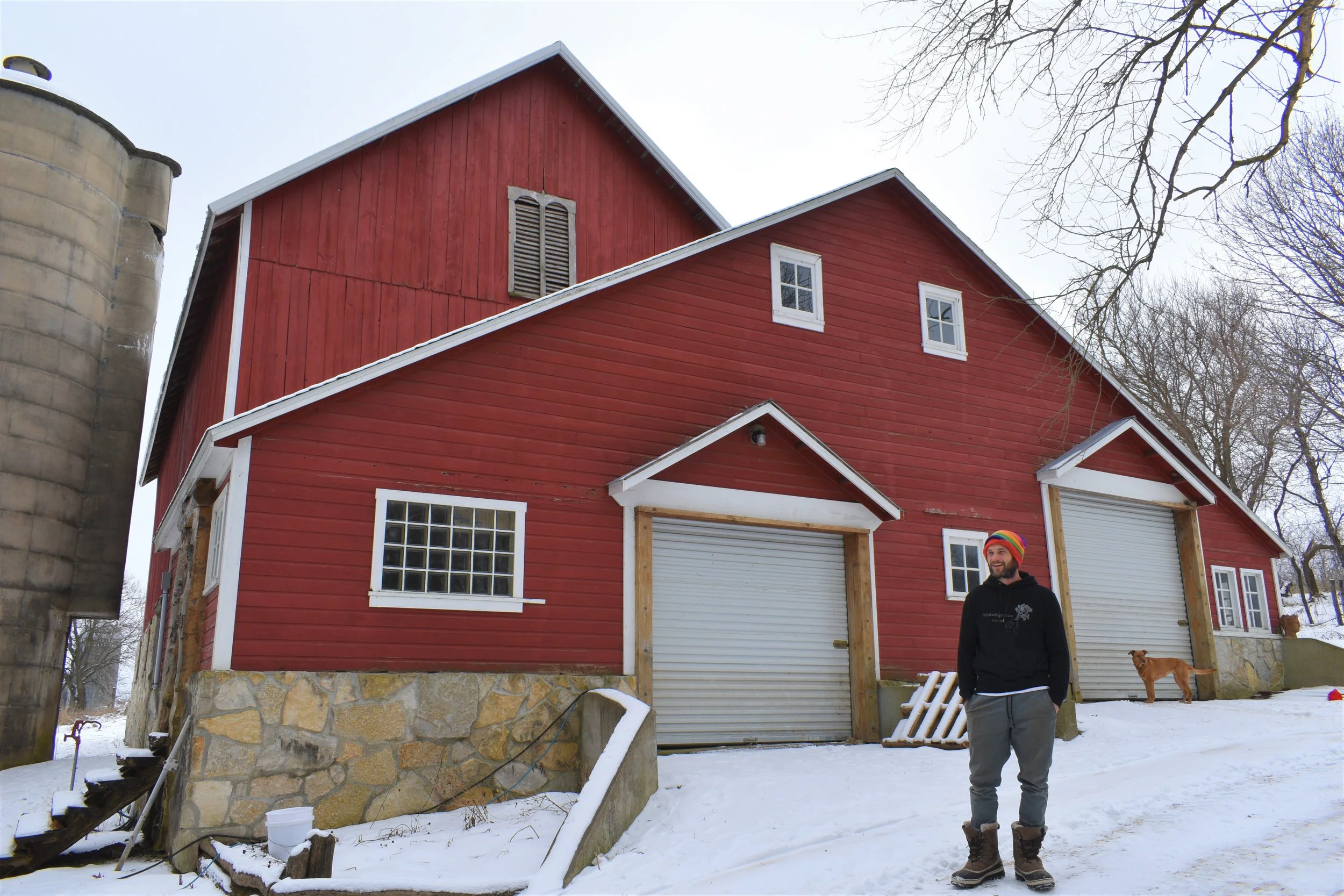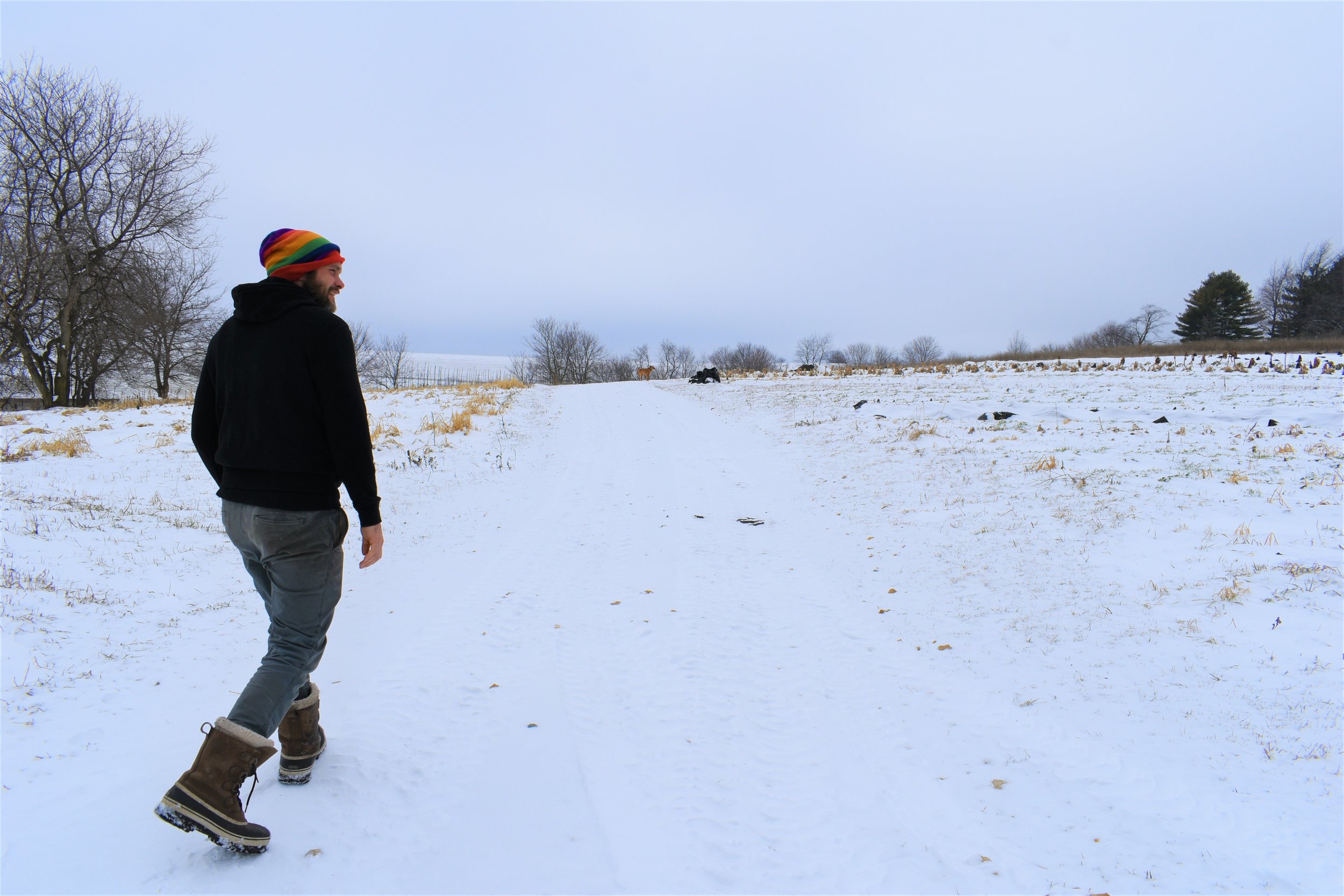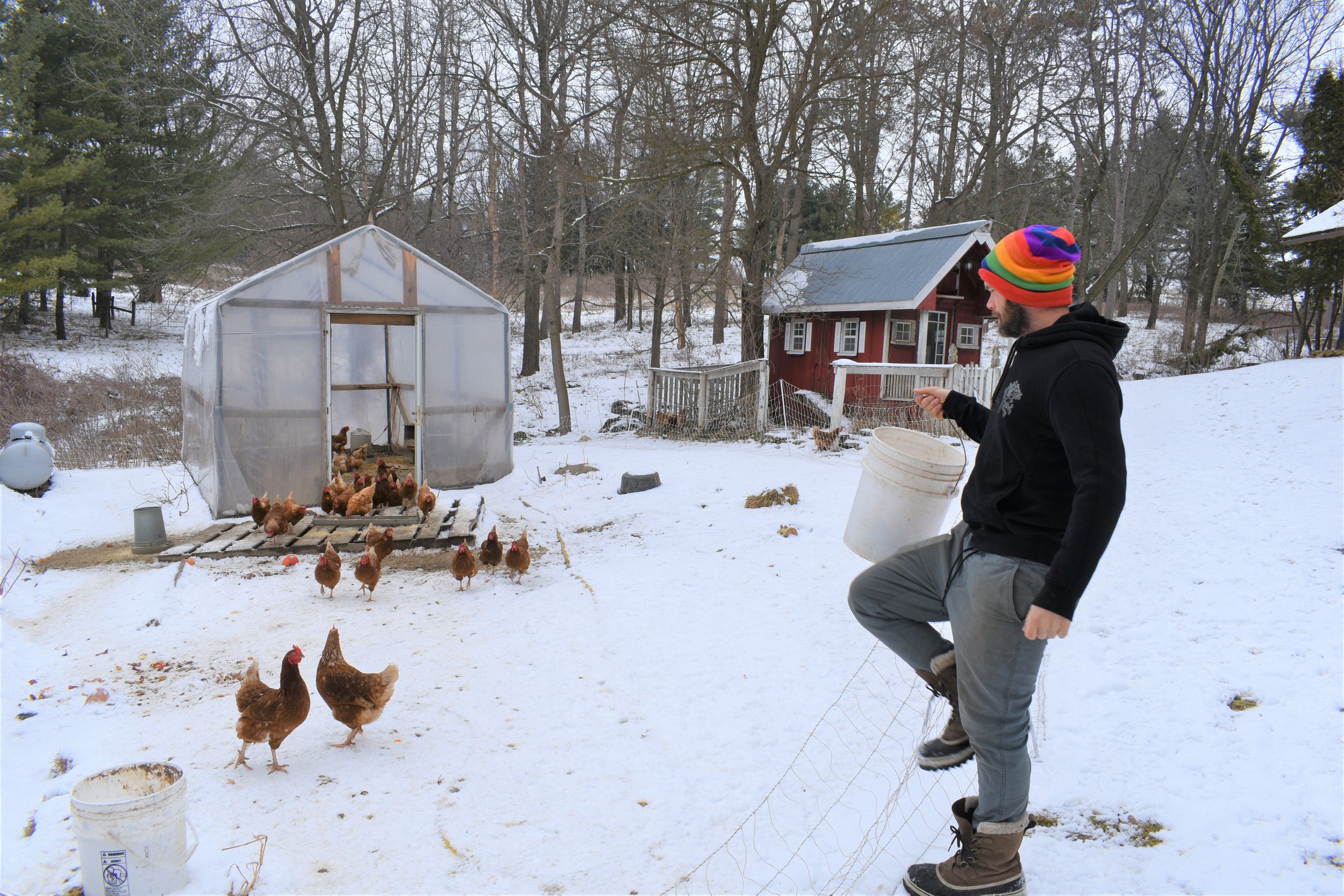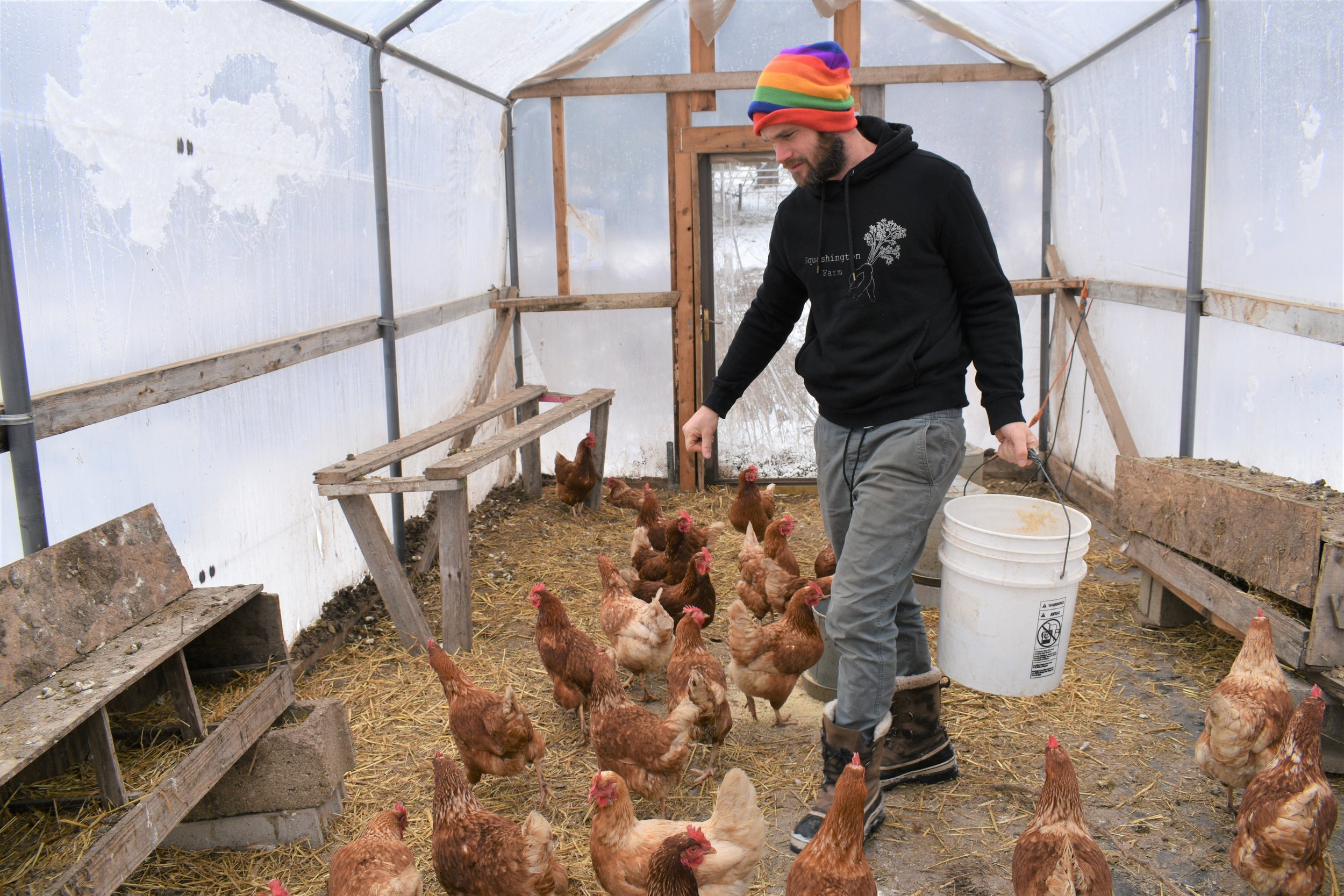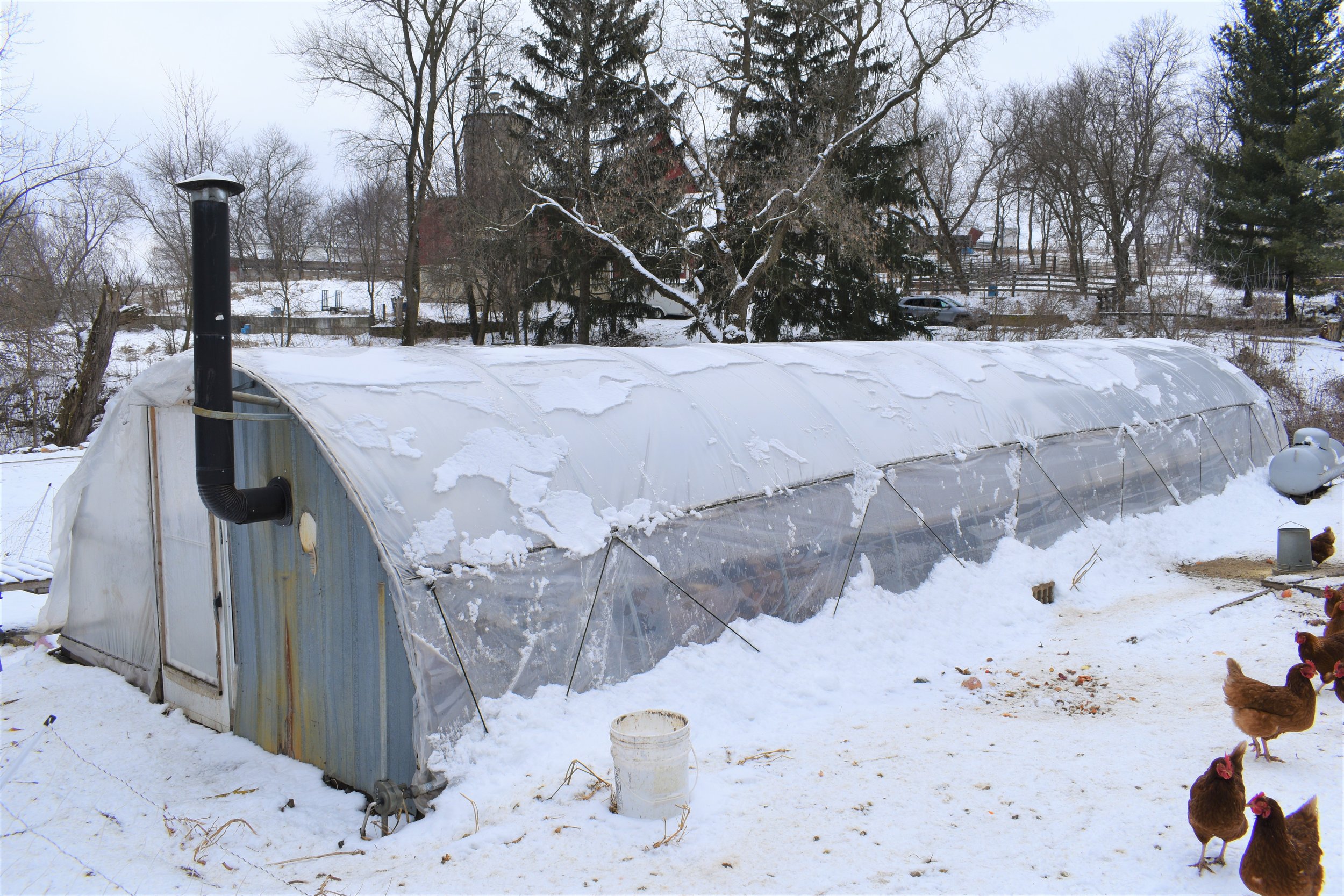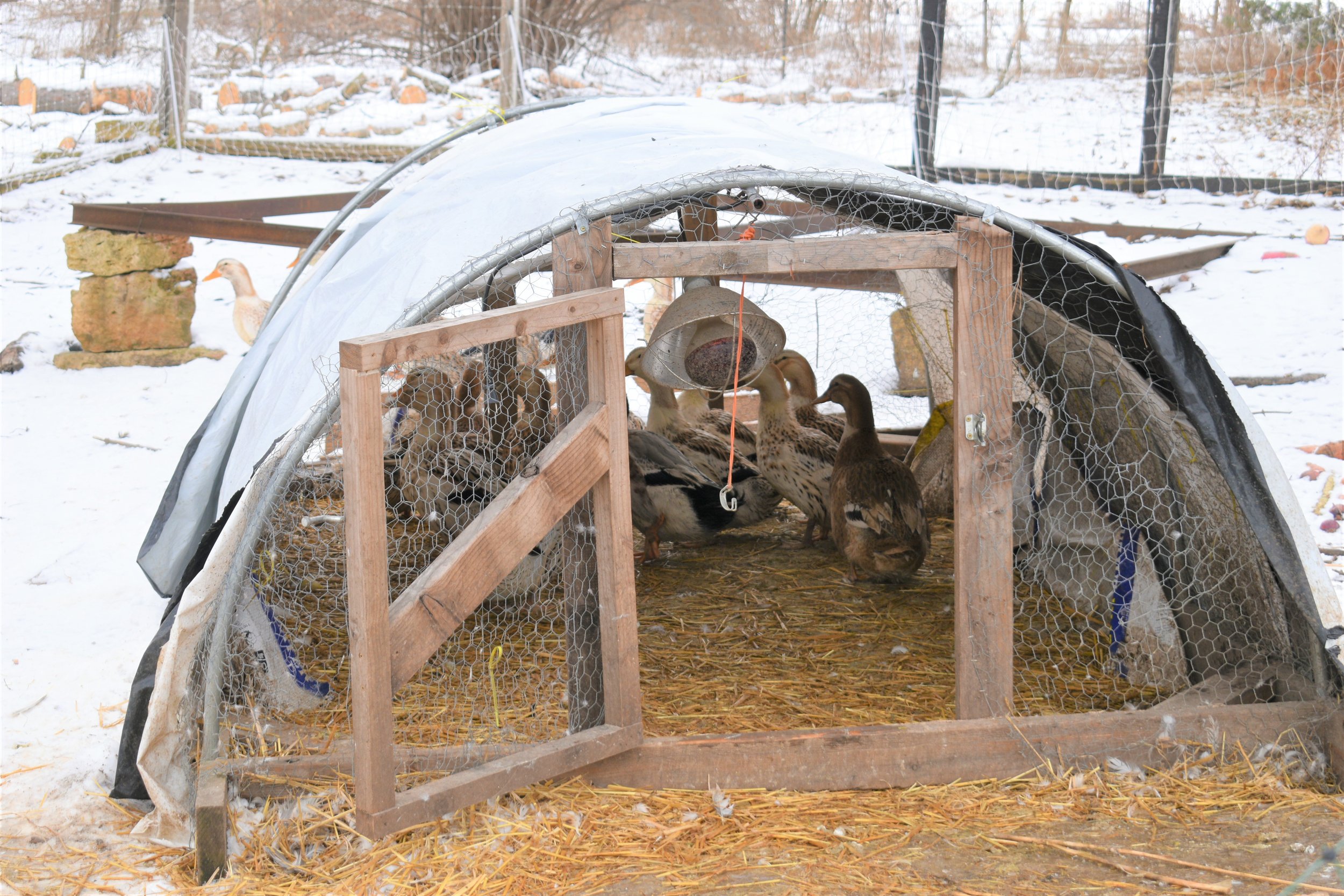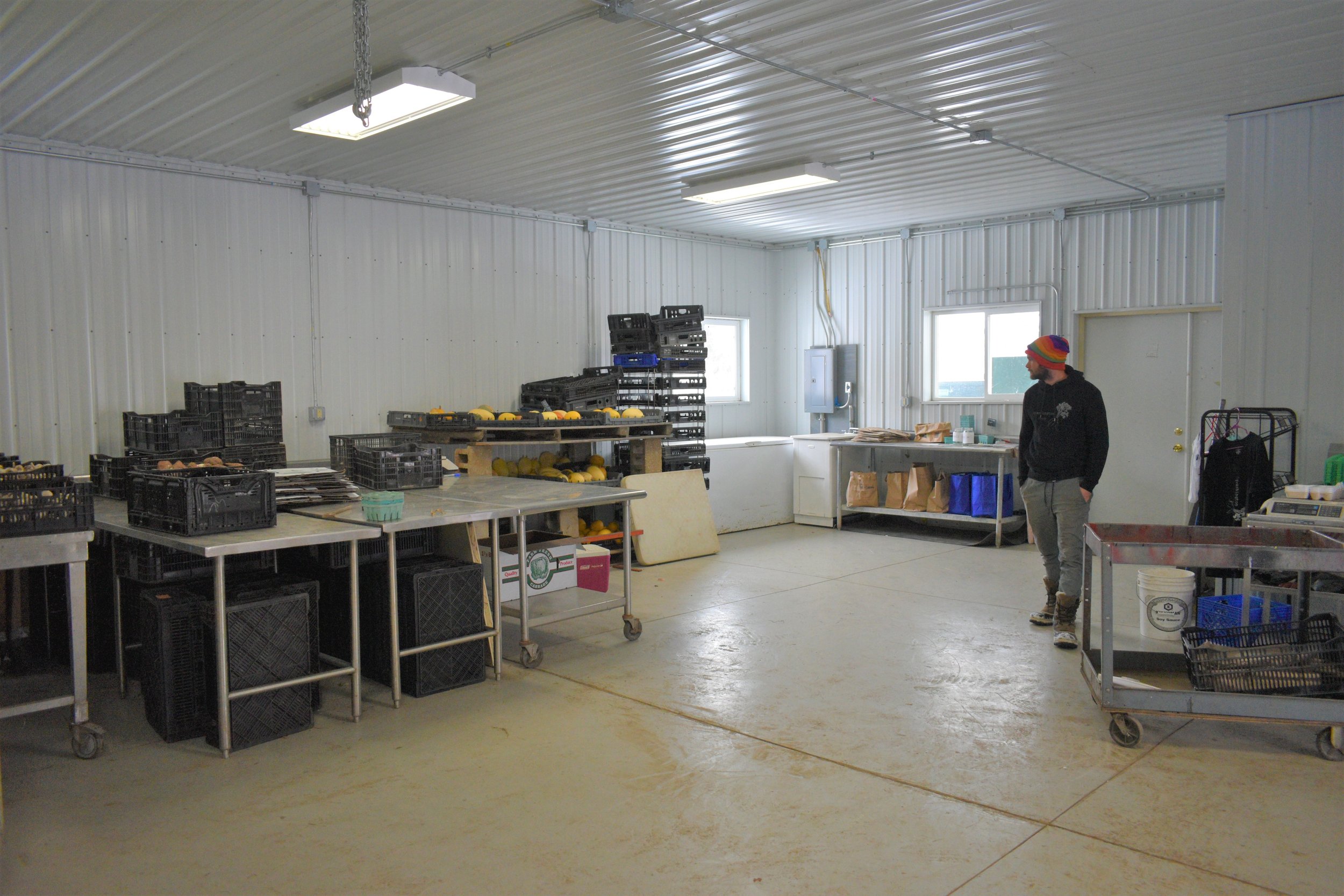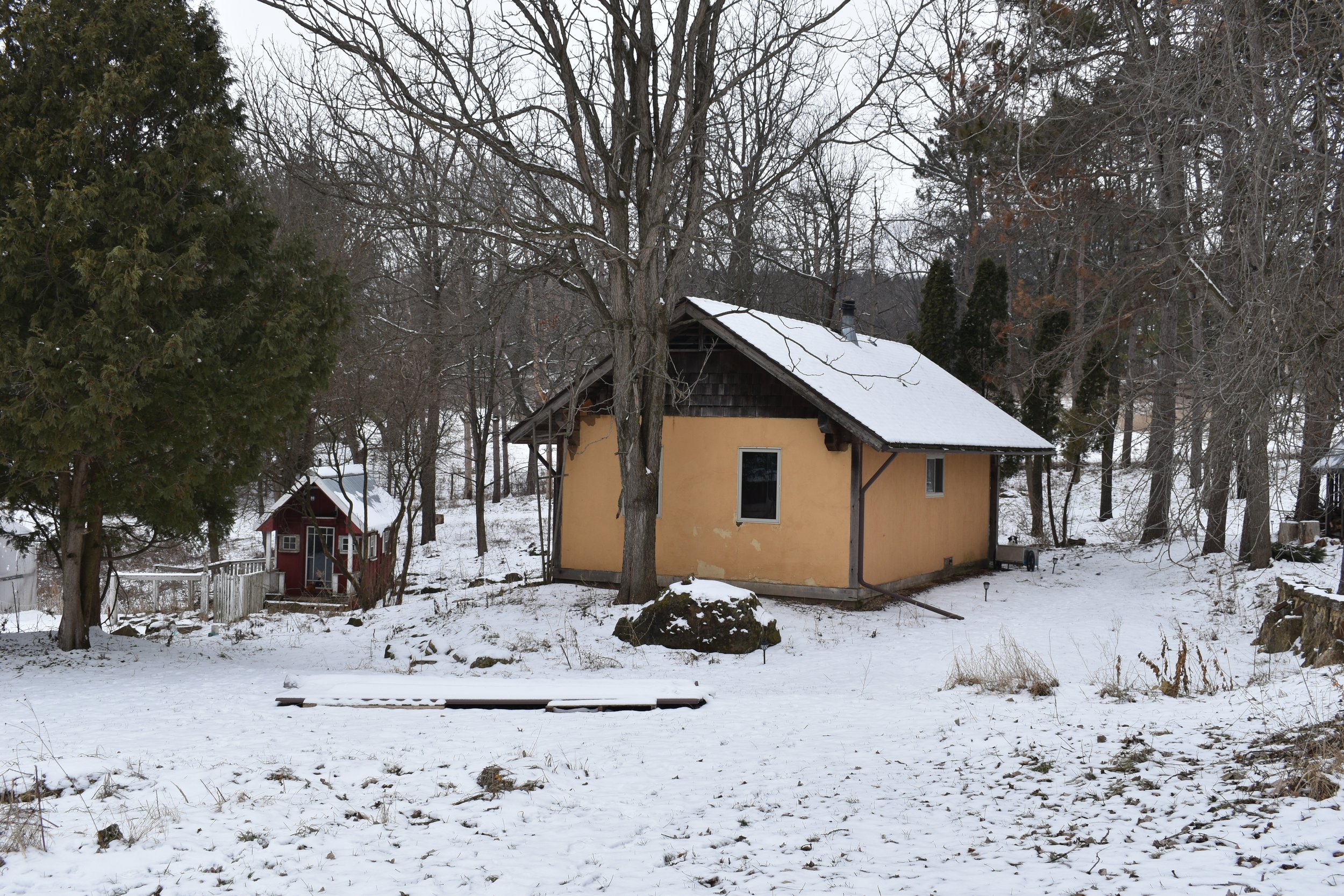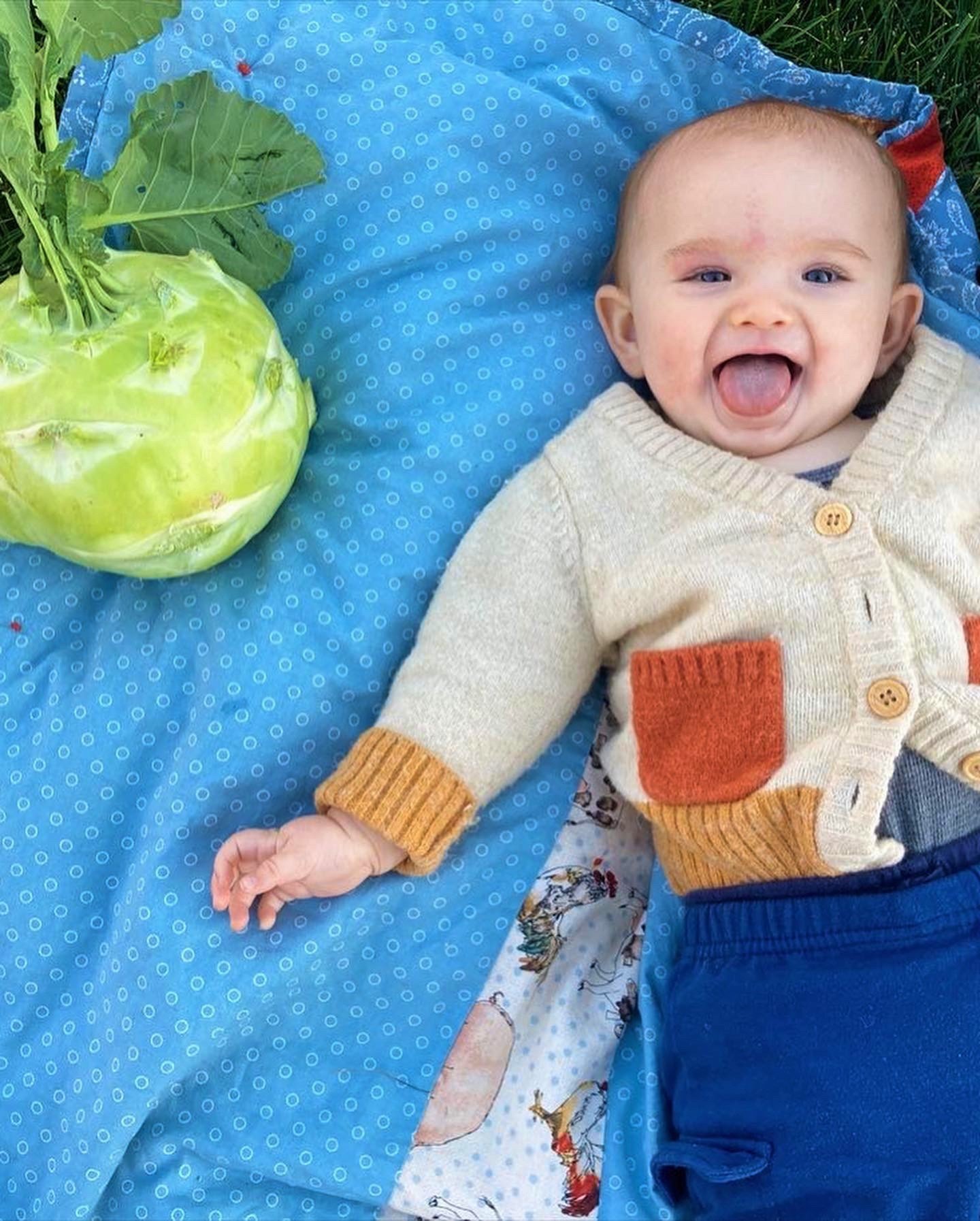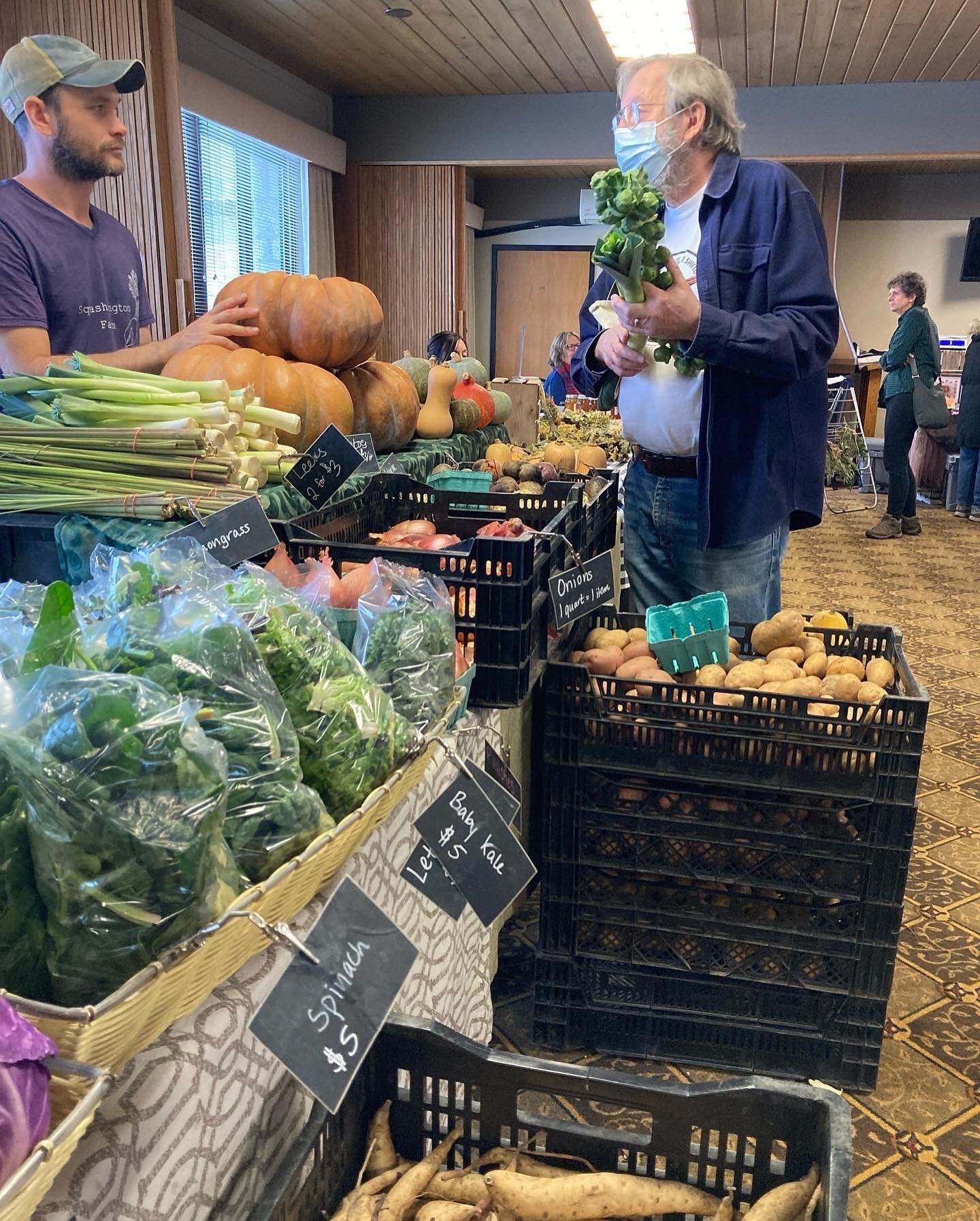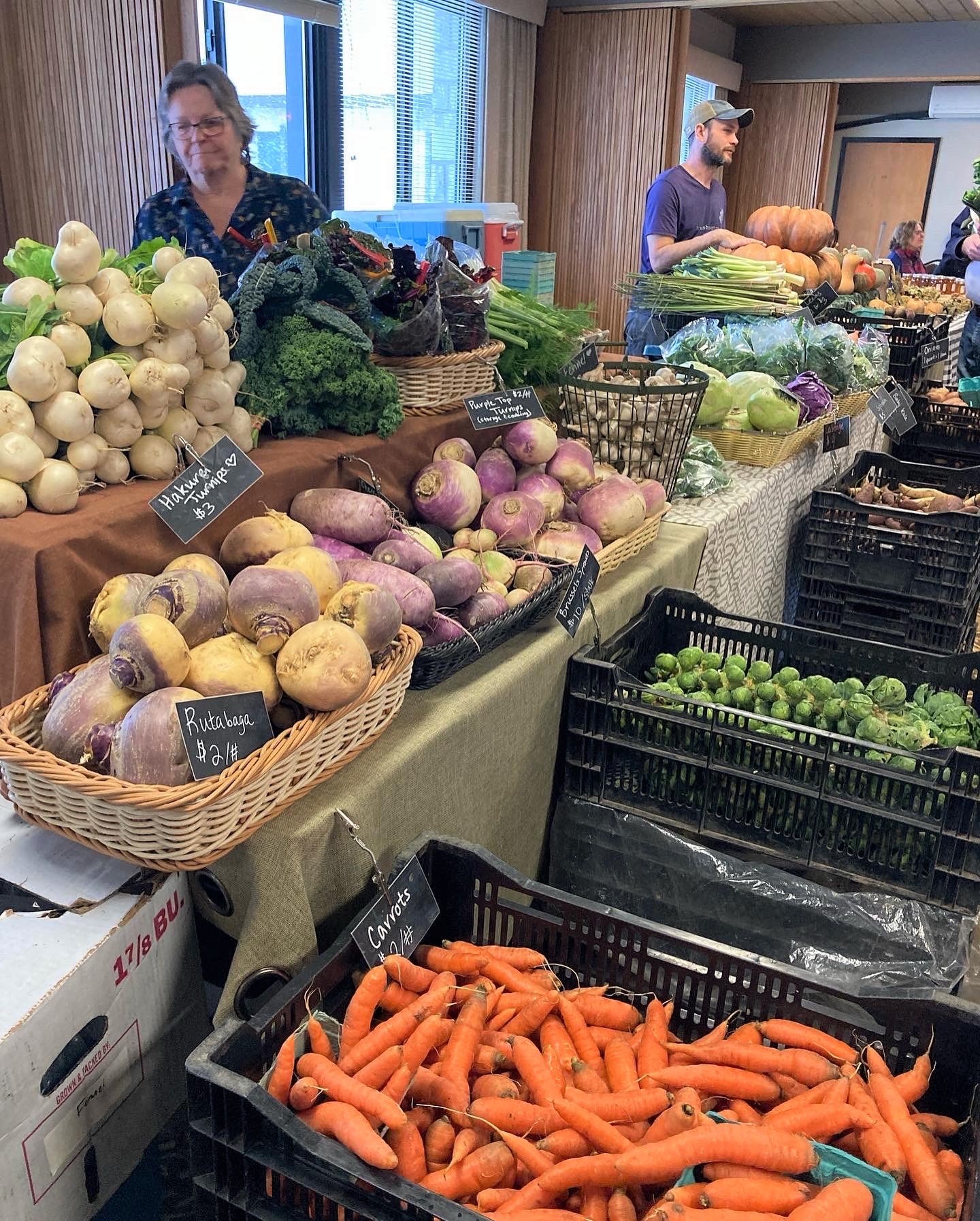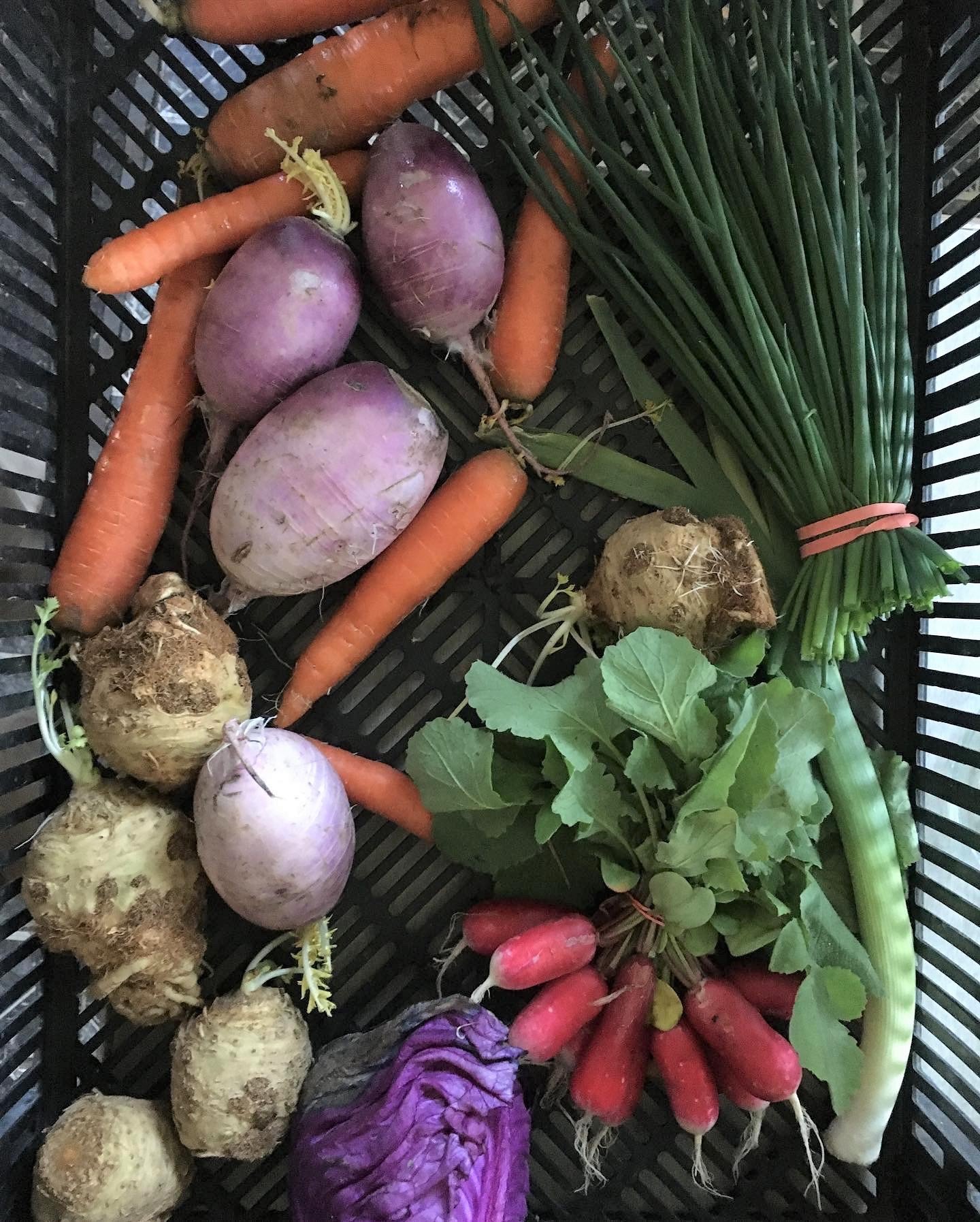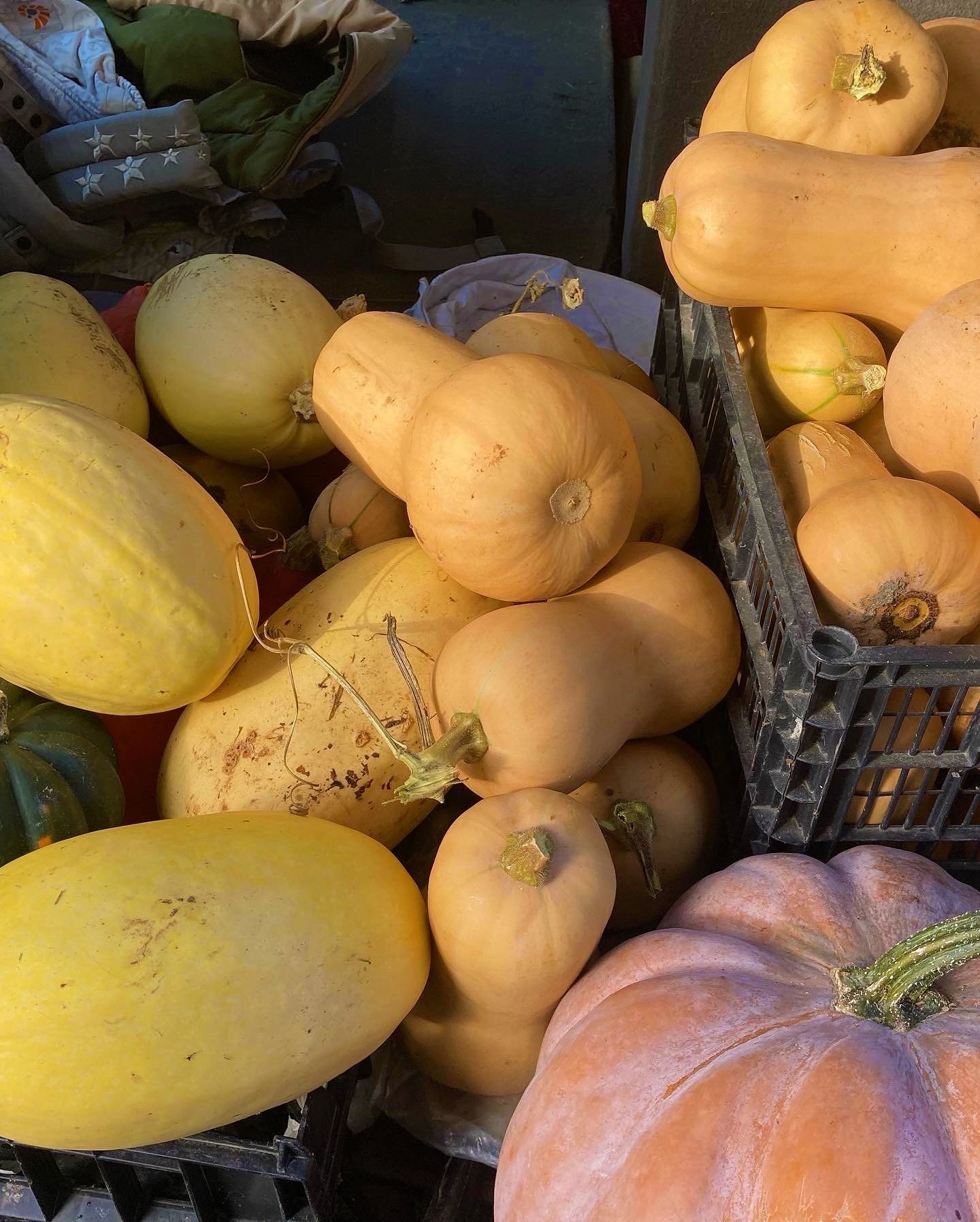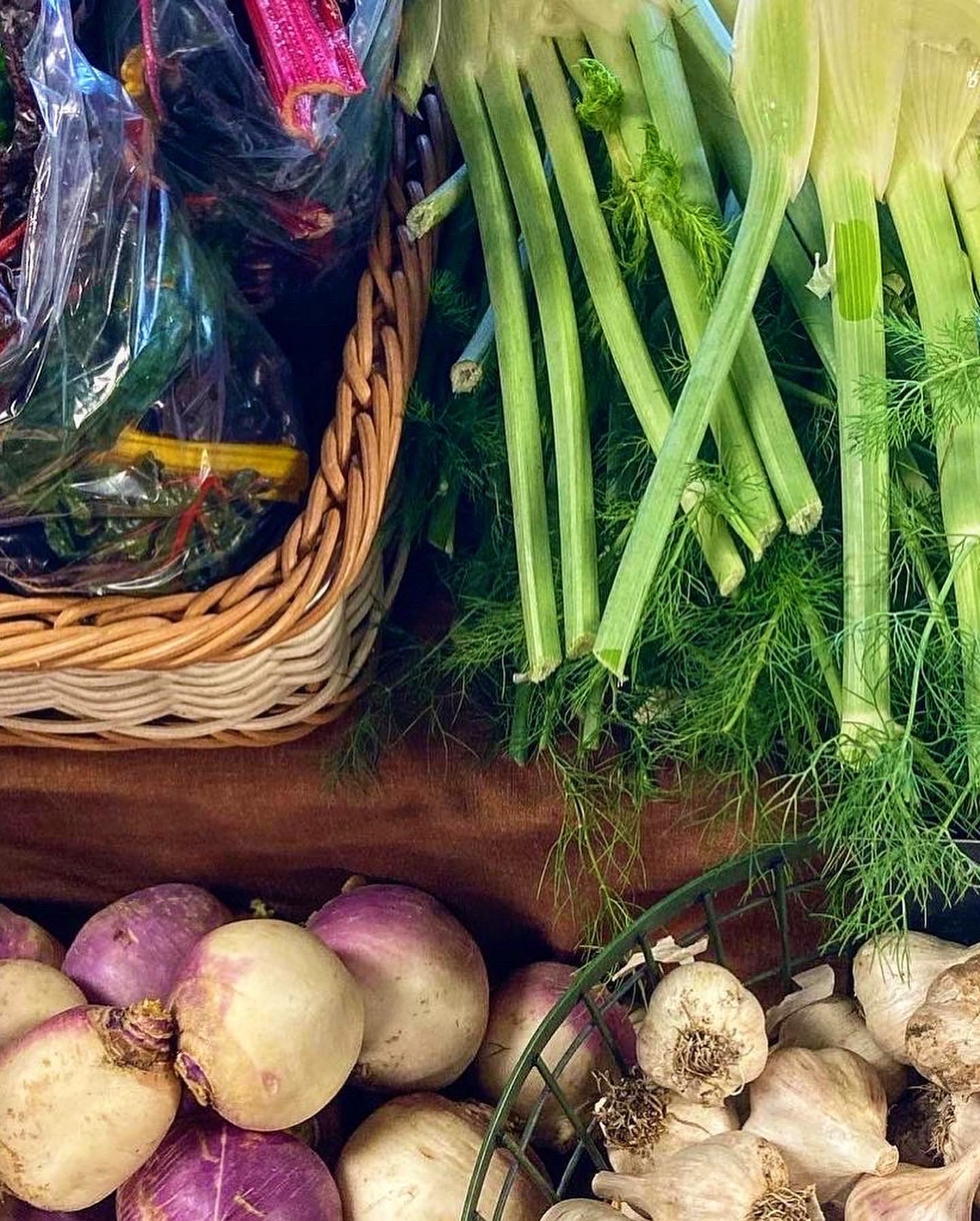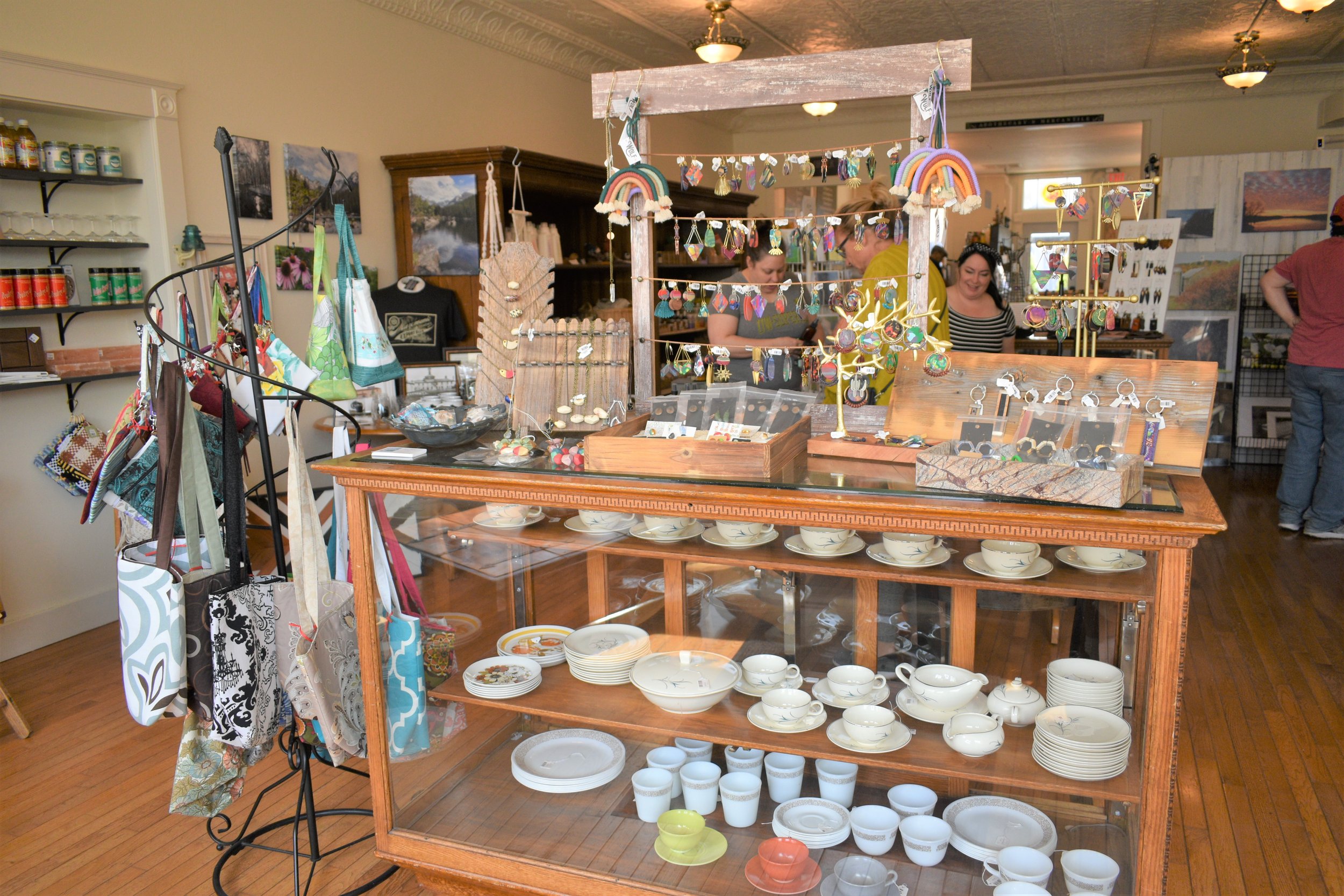Squashington Farm: a story from Mt. Horeb
The two met in upstate New York in the Adirondacks through an internship with the Student Conservation Association (SCA) in 2012. Both were right out of college with no real job prospects at the time. The internship provided the opportunity to live in the woods for six months and learn wilderness skills. Little did Pat Hager and Sarah Leong know, that opportunity would eventually lead them on a journey together.
“I had never even camped before. So, I learned how to camp and set up camp, bear bags, and how to pack in food and tools. But we also learned how to build bridges out of rustic timber, how to fell trees, chisel rocks and do Mason work and all sorts of other things,” said Sarah. She said it was the most she’d ever learned in her life in that six-month period up until that point at least. She and Pat worked together as a small team at times during those months and fell in love. “Neither of us were committed by any means, but for a while, weren't ready to say goodbye”, said Sarah.
So, when the internship ended, Pat invited her back to Wisconsin where he was from. The two moved into a one-bedroom apartment with Pat’s younger brother, and as she put it, “somehow made it work”.
Pat chimed in saying, “In some ways it was like the best thing that we could have done, because she had never seen winter before. For someone who's been through, you know, like 20 odd years of winter, having someone who's never been through it, it was like I was going through it for the first time in my 20s, again. It was really kind of special, that winter in our tiny little hole. The whole outside was like unexplored new stuff.”
Oh, the adventures Sarah experienced. Her first-time ice fishing, building a snowman, snowballs, and skiing. But the two were hungry for greater adventure.
Sarah having never been, landed her and Pat jobs in Alaska as tour guides. But after a short stint there, decided that was not what the two were looking for. Fortunate for them at the time, Pat’s friend Layne who was back in Mt. Horeb working on a farm, was just hired for a full-time job elsewhere and could not manage both jobs. So, the couple moved back to help Layne by taking over work on the farm. No stranger to farming, while Pat was in college, worked on a farm for a couple seasons. “While we were in the Adirondacks (during their SCA internship), there was this really cool farm school that we got to see. I wanted to work there to learn how to grow food and what not, but it just didn't work out. So, we ended up here (Mt. Horeb) on a farm, said Sarah. Pat added, “We learned everything else together. I knew a little bit not a ton. The owner of that farm does research with the Hadza in Tanzania every summer, so he was not around to show us anything. So, there was nobody to guide us, basically is what I'm getting at.” But with the help of good ‘ol Google and books, the two really liked what they created together at the farm.
After working that farm for a year, gaining invaluable experience and knowledge, Pat and Sarah moved to a farm their friends Emmet and Cella were renting. Emmet and Cella had carved out fields there and had a small Community Supported Agriculture (CSA) set up. For those that are not familiar with CSA, according to Pat and Sarah, in a CSA, community members show their support of local farms by signing up for CSA shares, a.k.a. "memberships", and taking on the inherent risks of farming, and inherent benefits, with the farmers themselves. Together those involved get to experience healthier landscapes, eat nutrient dense food, build relationships with the community, and help sustain the livelihood of their local economy. Eventually, Emmet and Cella missing family, moved up North to be closer to them.
When Emmet and Cella moved, Sarah said, “There was kind of a void in Mt. Horeb for CSA farming. We weren't thinking we would do it (maintain the CSA of 20 members), but it was so easy to just take over their clientele and try. That ended up working out really well”.
Pat and Sarah acknowledged Emmet and Cella taught them a lot while working with them. Including, how to use animals to produce fertility as part of a system. “So, like on your farm, what you're creating, the end product looks like one thing, but it actually represents a whole community of things. Like the animals fertilize the soil, you plant the cover crop to feed to the animals and then you plant the crop on top of that once the animals are out. Now you've provided the nutrients on your own,” said Pat.
After 7 years of running their rented CSA farm, Pat and Sarah were ready to venture out on their own, and in November of 2021, bought a farm they named Squashington, in Mt. Horeb. “So, we bought this 20-acre farm. It's got about five acres tillable and we currently have about 150 CSA members equaling about a 100 full share equivalent. We do an A-to-Z style CSA as we try to provide a whole plethora of veggies, from interesting weird things that people don't typically buy, to very traditional staples like carrots, onions, and potatoes. We offer add-ons with our friends who also farm. We have a fruit share with Atoms to Apples that offers apples and cider and we offer meat from another local farm that’s five minutes from here. We raise chickens for eggs and meat, and raise ducks for eggs. We also sell at farmers markets in Mt. Horeb, and this year we got into Dane County. So, we will be at the square on Saturday as well. We sell a little bit of wholesale mostly to Mt. Horeb and a little bit into Madison,” said Sarah.
Squashington is part of the FairShare CSA Coalition, a 501(c)3 non-profit organization based in Madison, Wisconsin, that serves the Midwest region, and whose mission is to support and connect farmers and eaters through CSA. They envision a future where CSA is the backbone of a strong local food system and where all families have access to locally-produced, organic food from small-scale farms. Pat said FairShare has a program called partner shares, where people that you know that make under a certain amount of money can apply through their Partner Shares program and receive free CSA shares from whatever farm is closest to them. So, they felt becoming certified organic was worth it so they could participate in that program. Sarah pointed out; the program also offers HMO rebates for people who have HMOs that will give healthcare rebates. “This is like little incentives that make food more accessible for people.”
Pat shared, what really drew them to this place in particular, was that the property has trees and five acres of fields to grow on. “We can use a small section of the land to create a life while we take care of the rest of the land in a responsible way that actually, when you walk around, it feels good, it doesn't feel gross or, you know, lame. So, a little bit of what we also want to work on here, is habitat restoration type stuff, like planting different types of trees and just making sure that whoever takes it over next is in a good spot like we were.”
Happy with the size of their farm, and as Pat put it, “we are not looking to take over the world,” the couple do have plans for the future. “What we would like to do is, not so much expand our business. A lot of the places that we drive around here, we see mono cropping or like confined animals. I don't like it, and I would like to think, if we do ever have an opportunity to you know, buy more land, is to provide a business like a compost facility or something, that could support more land just being left and building habitat. And we're, you know, happy with the amount of work that we have in our life. We don't really want any more. The way that I imagine growth is, imagining Sarah and I leading growth. It's like, we meet somebody that wants to do this, and we figure out a way to work together.”
Sarah stressed they had a lot of help to get to where they are today saying, “We had so much help from Emmet and Cella. They showed us so much, and we learned so much, they were basically our mentors, and we were basically like an incubator couple that had no idea what they were doing. Now that we have years of experience under our belts, we'd like to just pass it forward, we’d like to share what we know. We definitely don't think that we're experts by any means, but we have a place to try things and to welcome people onto the farm. We've always said that we don't want to have any more than 200 CSA members, and now that we have 150, it's like, maybe we will have 180.”
All in all, Pat and Sarah said they just want to be able to cover bills, make the mortgage payment, and put money aside for retirement and their daughter. They recognize as small business owners, no one is providing a 401k for them.
For a wholesome experience, and glimpse into their world, Pat and Sarah have a private strawbale sauna house on their property that is listed on AirBnB. According to their website, squashingtonfarm.com, the sauna house is perfect for individuals or couples looking for a relaxing getaway with the luxury of close proximity to Mount Horeb and Madison. Lots of beautiful hiking/outdoor areas within 15 minutes, a plethora of restaurants and very cute local shops in Mount Horeb, as well as access to their organic farm. The Sauna House has its own private wood-fired sauna within the house, king-size bed, bathroom, Japanese soaking tub with shower head, charcoal grill, small kitchenette complete with 2-burner induction cooktop, toaster oven, mini fridge, coffee maker, electric flat top, pots/pans/utensils, and plenty of outdoor space. So, pretty much all you need to have a relaxing and carefree stay to take in nature and destress. Admittedly a nice addition to their farm, it helps provide necessary income for the couple to continue doing what is in their hearts.
“When we bought the place, it was beautiful. We walked onto the place and you're like, ‘This feels like home. We love it. How can you make this work?’ But you know, the more we have seen how it's just been neglected and kind of taken advantage of, we just want to improve with what we can, how we can, and just make it a lush Oasis. We want an oasis just for ourselves, for our daughter, and whoever after,” Sarah said with a smile.
Visit Squashington Farm on Facebook: www.facebook.com/squashingtonfarm or on the web: squashingtonfarm.com
